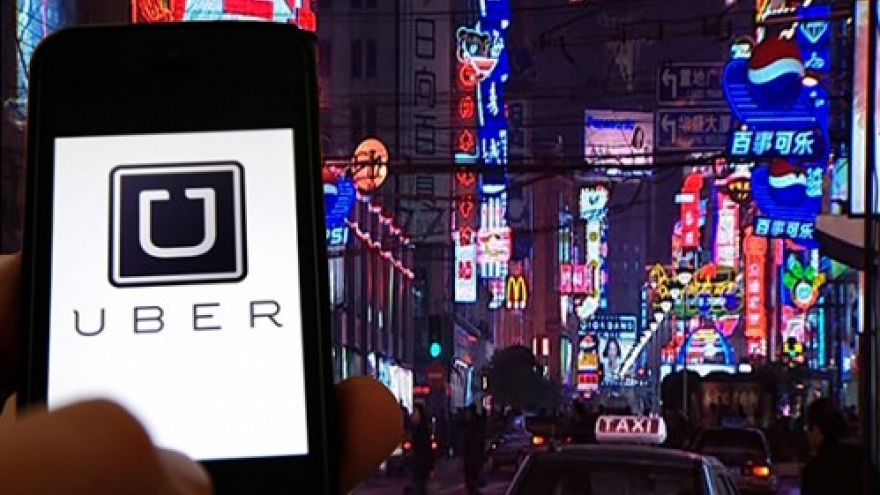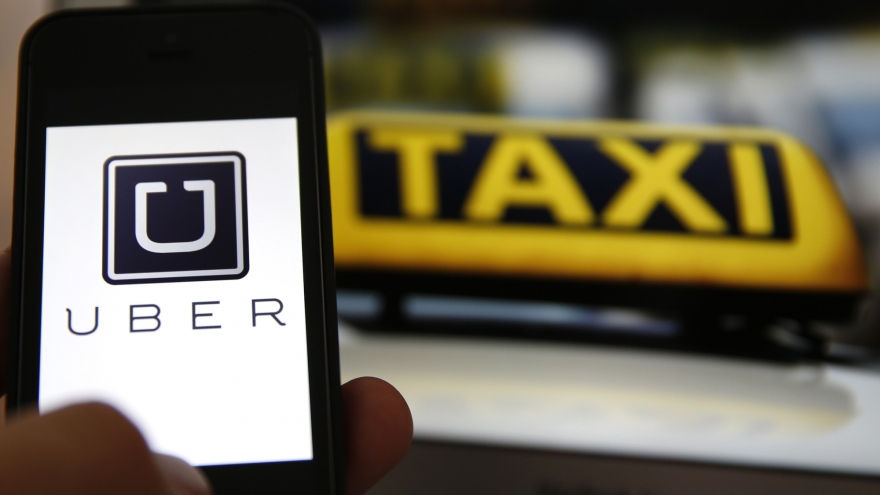Vietnam announces new tax rule for Uber
Vietnam’s Ministry of Finance has announced a new tax plan for Uber more than a month after withdrawing a controversial rule that required drivers to pay tax on behalf of the ride-hailing company.
 |
The involved parties are also required to reach agreements on revenue sharing from the business.
Uber, a smartphone app originally from the U.S. that allows users to hail private cars, was introduced to Vietnam in June 2014.
The app contracts with local car owners to use their own vehicles as private cars for customers, with 20 percent of each ride’s fare going to Uber and the remaining 80 percent going into the driver’s pockets.
According to the finance ministry, Uber is required to pay a total tax of 5 percent, including a 3% value-added tax and a 2% corporate income tax, on revenue generated from rides offered in Vietnam.
Those transportation organizations and drivers who contract with Uber are also required to pay taxes, including a 3% value-added tax and a 1.5% individual income tax.
The finance ministry requested that Uber B.V authorize its Vietnamese unit or another Uber-run entity to declare and pay those taxes on behalf of both the company and its local partners.
In June, the General Department of Taxation under the Ministry of Finance also issued a document specifying the taxpaying rules for Uber and its drivers. The guidance, however, was blasted by experts to be feeble and without benefit to state coffers.
The criticized rule said Uber would only have to declare and pay taxes on the 20 percent share it receives from drivers.
Moreover, as Uber has no representative in Vietnam, the General Department of Taxation has stipulated that the company’s Vietnamese partners claim corporate tax and value-added tax deductions, and pay those taxes, on behalf of Uber.
This means before giving Uber the 20 percent share of revenue, drivers must set aside a sum to pay taxes for the company. Vietnamese partners, however, are still expected to fulfill the tax obligations on their 80 percent share.
The tax plan has been strongly criticized by experts as ineffective and unreasonable.
Uber remains the only mobile app-based transport company in Vietnam to duck business registration and tax obligations, repeatedly remaining reluctant to legalize its operation in the Southeast Asian country.
One of its rivals in Vietnam, Grab, has completed registration and is paying taxes properly.



